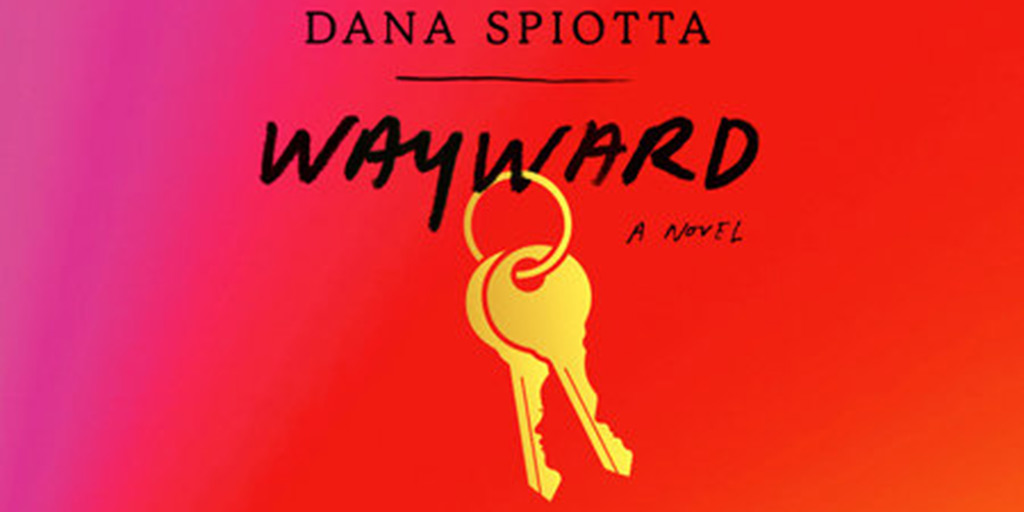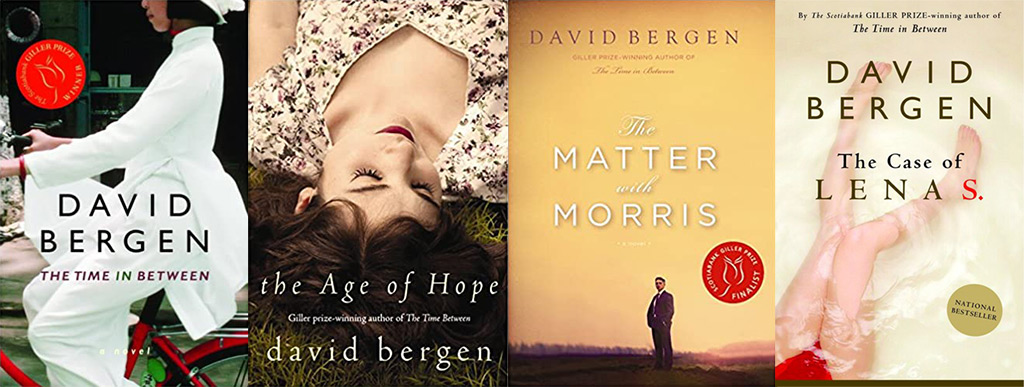Leaving Tomorrow, David Bergen (Toronto: HarperCollins), 2014. I am a proposer of projects aimed at answering arcane questions but, because of their arcaneness (arcanicity?) and because they would require more time of me than I have lifetimes to give, most of my projects go unprojected. One such project is to conduct a novel census. Create…
Category: Head
The category, Head, is for posts that make us think.
Book Review: Wayward, by Dana Spiotta
Spiotta has created not a novel so much as a record of the American zeitgeist with its strange mix of idyllic New England towns and protofascist MAGA mobs, its glorious universities and rampant anti-intellectualism, its shining democratic institutions and its racist trigger-happy police.
Adichie’s The Headstrong Historian: a Pedagogy of Decolonization
Most often we speak of colonization as the incursion of a people onto a land that doesn’t belong to them, and the seizure of its resources, but before that comes the mastery of the subject people’s minds.
The Walker: Haunting the Streets
Beaumont conceives of walking—at least as expressed by his author/heroes—as an act of resistance insofar as it fails to conform to the imperatives of our late capitalist economy. It has no preconceived end, motivated instead by pleasure and curiosity and the demands of recreation.
Book Review: Big Reader: essays, by Susan Olding
A writer’s experience shapes her work; it cannot be otherwise. But inevitably that experience happens in the context of personal relationships. In terms of privacy, what does a writer owe to the other people in those relationships. If a right to privacy were absolute, no one could ever write anything.
Egerton Ryerson Statue Toppled in Response to Discovery of Unmarked Graves
[T]he function of a statue is only marginally tied to history; its primary function is to serve as an object of reverence. Statuary (of historical figures) is an expression of idolatry that serves the universal religion of our age: the dominance of capital over everything.
Book Review: In Memory of Memory by Maria Stepanova, Translated by Sasha Dugdale
Stepanova celebrates the commonplace, whether she finds it in the stories of the people she remembers, people who never make it into history books or bear honorific titles or even professional designations, or in the objects she examines which are never the pristine articles that find their way to glass cases in museums but are the worn out items of daily usage.
Toronto Anti-Mask March Sounds Anti-Asian Notes
The very fact that we allow them to march down the main thoroughfare of our city gives the lie to their complaints. Admittedly, one of the marchers lost his freedom when he was arrested. But that was because he bit a police officer.
Revisiting Nadine Gordimer’s Novel, Get A Life
We watch discrete acts of consciousness unspooling themselves on every page. Like you and me in mid-thought, there is less attention to grammatical propriety. Instead, we have choppy bits. Subjects gone missing. Or implied. More fidelity to emotional states and to memory than to the logic of algorithmic prose.
Four Novels by David Bergen: The Case of Lena S
Bergen is willing to investigate the quiet moments that stitch together experience while eschewing the tendency to give greater weight to the momentous events.
Four Novels by David Bergen: The Matter with Morris
One could easily imagine the principal character here, Morris Schutt, meeting Barney Panovsky in a hotel bar and, together, the two of them putting a serious dent in a bottle of McCallan.
Four Novels by David Bergen: The Age of Hope
In a way, Bergen is the perfect author to read during a pandemic lockdown. History may record the Covid-19 global pandemic as a dramatic crisis worthy of its own straight-to-Netflix movie. But sitting here in the midst of it, I experience it not so much as a crisis as I do a chronic state to be endured.
Four Novels by David Bergen: The Time In Between
For me, what drives the comparison [to Denis Johnson] more deeply is the style of the writing. Both writers deploy a crisp detached prose that is perfectly suited to evince an emotionally lost protagonist looking from the outside in.
Facial Recognition and G. K. Chesterton’s The Man Who Was Thursday
To the extent that our reality is increasingly defined by our connection to virtual environments, the function of our (facial) identity will be increasingly restricted to concerns of social control and commercial opportunity.
Short Story: My Covid Suffering
While she waited for the water to boil, Amanda stared at her tiny head reflected back to her in the curved metal surface of the kettle, and she considered that maybe her life was beginning to feel as warped as it appeared to her in the kettle.











